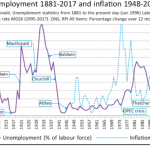Top Qualities Sought in Finance Director Recruitment in the Channel Islands
Introduction
The Channel Islands, known for their robust financial services sector, have long been a hub for international finance and investment. As the industry continues to evolve, the demand for skilled finance directors who can navigate the complexities of this dynamic environment has never been greater. Companies in the Channel Islands are seeking finance directors who not only possess technical expertise but also demonstrate strategic vision, leadership, and adaptability. This article explores the top qualities that organizations prioritize when recruiting finance directors in this unique and competitive market.
Overview of the Finance Director Role
Key Responsibilities
The Finance Director plays a pivotal role in steering the financial strategy of an organization. They are responsible for overseeing all financial operations, including budgeting, forecasting, and financial planning. This role involves ensuring the accuracy of financial reporting and compliance with regulatory requirements. The Finance Director also manages relationships with external stakeholders such as auditors, banks, and investors, and provides strategic financial insights to the executive team to support decision-making.
Strategic Leadership
A Finance Director is expected to provide strategic leadership in financial management. This includes developing long-term financial strategies that align with the organization’s goals and objectives. They must be adept at identifying financial risks and opportunities, and crafting strategies to mitigate risks while capitalizing on opportunities. The Finance Director also plays a crucial role in mergers and acquisitions, guiding the organization through complex financial transactions.
Financial Reporting and Compliance
Ensuring accurate and timely financial reporting is a core responsibility of the Finance Director. They must ensure that all financial statements are prepared in accordance with relevant accounting standards and regulatory requirements. The Finance Director is also responsible for implementing and maintaining robust internal controls to safeguard the organization’s assets and ensure compliance with financial regulations.
Team Management and Development
The Finance Director leads the finance team, providing guidance and support to ensure high performance. This involves recruiting, training, and developing finance staff, as well as fostering a culture of continuous improvement and professional development. The Finance Director must also ensure that the finance team is equipped with the necessary tools and resources to perform their duties effectively. FD Capital are a leader within Finance Director Recruitment.
Stakeholder Engagement
Engaging with both internal and external stakeholders is a critical aspect of the Finance Director’s role. Internally, they collaborate with other departments to align financial strategies with operational goals. Externally, they maintain relationships with investors, auditors, and financial institutions, ensuring transparent communication and building trust. The Finance Director also represents the organization in financial discussions and negotiations, advocating for its financial interests.
Technological Proficiency
In today’s digital age, a Finance Director must be proficient in using financial software and technology. This includes leveraging data analytics tools to gain insights into financial performance and trends. The Finance Director is also responsible for driving digital transformation within the finance function, ensuring that the organization remains competitive and efficient in its financial operations.
Key Financial Expertise and Technical Skills
Financial Reporting and Analysis
A Finance Director in the Channel Islands must possess a strong command of financial reporting and analysis. This includes the ability to prepare and interpret financial statements, ensuring compliance with International Financial Reporting Standards (IFRS) or Generally Accepted Accounting Principles (GAAP). Proficiency in analyzing financial data to identify trends, variances, and opportunities for cost savings or revenue enhancement is crucial. The ability to communicate these insights effectively to stakeholders is also essential.
Budgeting and Forecasting
Expertise in budgeting and forecasting is a critical skill for a Finance Director. This involves developing comprehensive budgets that align with the strategic goals of the organization and creating accurate financial forecasts to guide decision-making. A deep understanding of financial modeling techniques and the ability to adapt to changing economic conditions are necessary to ensure the organization remains financially resilient.
Risk Management
Finance Directors must be adept at identifying, assessing, and mitigating financial risks. This includes understanding the regulatory environment in the Channel Islands and ensuring compliance with relevant laws and regulations. The ability to implement robust internal controls and risk management frameworks is vital to protect the organization’s assets and reputation.
Taxation and Regulatory Compliance
A thorough understanding of the taxation landscape in the Channel Islands is essential for a Finance Director. This includes knowledge of local tax laws, international tax treaties, and the ability to optimize the organization’s tax position. Ensuring compliance with all regulatory requirements and staying abreast of changes in legislation is critical to avoid legal and financial penalties.
Treasury and Cash Management
Effective treasury and cash management skills are necessary to maintain the financial health of the organization. This involves managing cash flow, optimizing working capital, and ensuring sufficient liquidity to meet operational needs. Proficiency in managing banking relationships and negotiating favorable terms is also important to support the organization’s financial strategy.
Strategic Financial Planning
Finance Directors must be strategic thinkers with the ability to align financial planning with the organization’s long-term objectives. This includes evaluating investment opportunities, conducting financial due diligence, and supporting mergers and acquisitions. The ability to develop and implement financial strategies that drive growth and enhance shareholder value is a key requirement.
Technological Proficiency
In today’s digital age, technological proficiency is a must for Finance Directors. This includes familiarity with financial software and enterprise resource planning (ERP) systems, as well as the ability to leverage data analytics tools to enhance financial decision-making. Understanding emerging technologies such as blockchain and artificial intelligence can also provide a competitive edge in the finance sector.
Leadership and Management Abilities
Visionary Leadership
A Finance Director in the Channel Islands must possess visionary leadership to navigate the complexities of the financial landscape. This involves setting a clear strategic direction for the finance department and aligning it with the broader organizational goals. Visionary leaders inspire and motivate their teams by communicating a compelling vision of the future, fostering a culture of innovation and continuous improvement.
Decision-Making Skills
Effective decision-making is a critical quality for a Finance Director. This involves analyzing complex financial data, assessing risks, and making informed decisions that drive the organization forward. A Finance Director must be adept at weighing the pros and cons of various options and choosing the best course of action to achieve financial stability and growth.
Team Development and Mentorship
A successful Finance Director should focus on team development and mentorship. This includes identifying the strengths and weaknesses of team members, providing constructive feedback, and creating opportunities for professional growth. By fostering a supportive environment, Finance Directors can cultivate a high-performing team that is capable of meeting the organization’s financial objectives.
Communication and Interpersonal Skills
Strong communication and interpersonal skills are essential for a Finance Director. This involves effectively conveying complex financial information to non-financial stakeholders, including board members and other executives. A Finance Director must also be able to build and maintain strong relationships with internal and external partners, facilitating collaboration and ensuring alignment with the organization’s financial strategy. FD Capital are a leader within Finance Director Recruitment.
Change Management
In the dynamic financial environment of the Channel Islands, a Finance Director must be proficient in change management. This involves leading the organization through financial transformations, such as implementing new technologies or restructuring financial processes. A Finance Director should be able to manage resistance to change, ensuring a smooth transition and minimizing disruptions to the organization’s operations.
Conflict Resolution
Conflict resolution is a vital skill for a Finance Director, as disagreements may arise within the finance team or with other departments. A Finance Director must be able to mediate conflicts, fostering a collaborative atmosphere and ensuring that disputes are resolved in a manner that aligns with the organization’s goals. This requires empathy, active listening, and the ability to negotiate effectively.
Strategic Planning
Strategic planning is a cornerstone of effective leadership and management for a Finance Director. This involves developing long-term financial plans that support the organization’s mission and objectives. A Finance Director must be able to anticipate future challenges and opportunities, ensuring that the organization is well-positioned to achieve sustainable growth and success.
Strategic Vision and Business Acumen
Understanding of Market Dynamics
A Finance Director in the Channel Islands must possess a deep understanding of market dynamics. This includes the ability to analyze and interpret financial trends, economic indicators, and competitive landscapes. The unique financial environment of the Channel Islands, with its blend of local and international business influences, requires a Finance Director to be adept at navigating complex regulatory frameworks and market conditions. This understanding enables them to anticipate changes and adapt strategies accordingly, ensuring the organization remains competitive and compliant.
Long-term Planning and Forecasting
Strategic vision in finance involves the capacity for long-term planning and accurate forecasting. A Finance Director should be skilled in developing financial models that project future performance based on various scenarios. This involves not only a thorough grasp of the organization’s current financial status but also an ability to predict future challenges and opportunities. Effective long-term planning ensures that the organization can allocate resources efficiently, manage risks proactively, and capitalize on growth opportunities.
Decision-Making and Problem-Solving
Business acumen is closely tied to decision-making and problem-solving capabilities. A Finance Director must be able to make informed decisions quickly, often with incomplete information. This requires a strong analytical mindset and the ability to weigh the potential risks and rewards of different courses of action. Problem-solving skills are essential for addressing financial challenges, optimizing processes, and driving operational improvements. A Finance Director’s ability to make sound decisions under pressure is crucial for maintaining the financial health of the organization.
Leadership and Influence
Strategic vision and business acumen are not just about numbers; they also involve leadership and influence. A Finance Director must be able to articulate a clear financial strategy and inspire confidence among stakeholders, including board members, investors, and employees. This requires excellent communication skills and the ability to translate complex financial concepts into actionable insights. By fostering a culture of financial discipline and strategic thinking, a Finance Director can guide the organization towards achieving its long-term objectives.
Adaptability and Innovation
In the rapidly evolving financial landscape of the Channel Islands, adaptability and innovation are key components of strategic vision. A Finance Director should be open to new ideas and technologies that can enhance financial performance and operational efficiency. This includes staying abreast of emerging trends such as digital transformation, fintech innovations, and sustainable finance practices. By embracing change and fostering a culture of innovation, a Finance Director can position the organization to thrive in a dynamic environment.
Regulatory Knowledge and Compliance
Understanding of Local Regulatory Frameworks
A Finance Director in the Channel Islands must possess a comprehensive understanding of the local regulatory frameworks. The Channel Islands, comprising Jersey and Guernsey, have distinct regulatory environments that are crucial for financial operations. A deep knowledge of the Financial Services Commission regulations in both Jersey and Guernsey is essential. This includes familiarity with the specific laws governing banking, insurance, investment funds, and fiduciary services. The ability to navigate these regulations ensures that the organization remains compliant and avoids potential legal pitfalls.
Expertise in International Compliance Standards
In addition to local regulations, a Finance Director must be well-versed in international compliance standards. The Channel Islands are significant players in the global financial market, and as such, adherence to international standards such as the Common Reporting Standard (CRS), Anti-Money Laundering (AML) directives, and the Foreign Account Tax Compliance Act (FATCA) is critical. A Finance Director should be able to integrate these standards into the company’s operations, ensuring that all financial activities are conducted within the legal frameworks of both local and international jurisdictions.
Risk Management and Mitigation
Regulatory knowledge is closely tied to effective risk management. A Finance Director should be adept at identifying potential compliance risks and implementing strategies to mitigate them. This involves conducting regular audits, staying updated with regulatory changes, and ensuring that the company’s policies and procedures are aligned with current laws. The ability to foresee and address compliance issues before they escalate is a valuable skill that protects the organization from financial and reputational damage.
Continuous Professional Development
The regulatory landscape is constantly evolving, and a Finance Director must commit to continuous professional development to stay informed of changes. This includes participating in relevant training programs, attending industry conferences, and engaging with regulatory bodies. By maintaining an up-to-date understanding of regulatory changes, a Finance Director can proactively adjust the company’s compliance strategies, ensuring ongoing adherence to all applicable laws and standards. FD Capital are a leader within Finance Director Recruitment.
Leadership in Compliance Culture
A Finance Director plays a pivotal role in fostering a culture of compliance within the organization. This involves leading by example and promoting ethical behavior across all levels of the company. By instilling a strong compliance culture, the Finance Director ensures that all employees understand the importance of adhering to regulatory requirements and are equipped to contribute to the organization’s compliance efforts. This leadership is crucial in maintaining the integrity and reputation of the company in the Channel Islands’ financial sector.
Adaptability and Problem-Solving Skills
Importance of Adaptability in Finance Leadership
In the dynamic financial landscape of the Channel Islands, adaptability is a critical quality for finance directors. The ability to adjust to rapidly changing market conditions, regulatory environments, and technological advancements is essential. Finance directors must navigate these changes while maintaining the financial health and strategic direction of their organizations. Adaptability ensures that they can respond effectively to unforeseen challenges and capitalize on new opportunities.
Navigating Regulatory Changes
The Channel Islands are subject to unique regulatory frameworks that can frequently change. A finance director must be adept at understanding and implementing these changes to ensure compliance and mitigate risks. This requires a proactive approach to staying informed about regulatory updates and a flexible mindset to integrate new requirements into existing financial practices seamlessly.
Embracing Technological Advancements
Technological innovation is transforming the finance sector, with new tools and platforms emerging regularly. Finance directors in the Channel Islands must be open to adopting these technologies to enhance efficiency and accuracy in financial reporting and analysis. This involves not only understanding the potential benefits of new technologies but also leading their implementation and integration into the organization’s financial systems.
Problem-Solving in Complex Financial Environments
The ability to solve complex problems is a hallmark of an effective finance director. In the Channel Islands, where financial operations often involve cross-border transactions and diverse financial instruments, problem-solving skills are crucial. Finance directors must be able to analyze complex data, identify potential issues, and develop strategic solutions that align with the organization’s goals.
Strategic Decision-Making
Problem-solving in finance is not just about addressing immediate issues but also involves strategic decision-making. Finance directors must evaluate the long-term implications of their decisions and ensure they contribute to the organization’s overall strategy. This requires a deep understanding of the business environment, financial acumen, and the ability to anticipate future challenges and opportunities.
Leading Through Uncertainty
In times of economic uncertainty or organizational change, finance directors must lead with confidence and clarity. Their adaptability and problem-solving skills enable them to guide their teams through challenging periods, ensuring that the organization remains resilient and focused on its objectives. This leadership quality is vital for maintaining stakeholder confidence and achieving sustainable growth.
Cultural Fit and Interpersonal Skills
Understanding Cultural Fit
Cultural fit is a critical component in the recruitment of a Finance Director in the Channel Islands. It involves aligning the candidate’s values, beliefs, and behaviors with the organizational culture. In the unique business environment of the Channel Islands, where companies often have a strong sense of community and tradition, a Finance Director must resonate with these cultural nuances. This alignment ensures that the director can effectively integrate into the team, uphold the company’s ethos, and contribute positively to the workplace environment.
Importance of Interpersonal Skills
Interpersonal skills are equally vital for a Finance Director, as they facilitate effective communication and collaboration within the organization. These skills include active listening, empathy, and the ability to build strong relationships with colleagues, stakeholders, and clients. In the Channel Islands, where business networks are often close-knit, a Finance Director with strong interpersonal skills can navigate complex social dynamics, foster trust, and drive successful partnerships.
Balancing Professional Expertise with Cultural Sensitivity
A Finance Director must balance their professional expertise with cultural sensitivity. This involves understanding and respecting the local customs, traditions, and business practices of the Channel Islands. A culturally sensitive director can adapt their leadership style to suit the local context, ensuring that their financial strategies and decisions are well-received and effective. This balance is crucial for maintaining harmony within the organization and achieving long-term success.
Building a Collaborative Work Environment
Creating a collaborative work environment is essential for a Finance Director in the Channel Islands. This requires fostering open communication, encouraging teamwork, and promoting a culture of inclusivity. By leveraging their interpersonal skills, a Finance Director can inspire and motivate their team, leading to increased productivity and innovation. A collaborative environment also enhances employee satisfaction and retention, which are key factors in the competitive job market of the Channel Islands. FD Capital are a leader within Finance Director Recruitment.
Navigating Diverse Stakeholder Relationships
The Channel Islands’ business landscape is characterized by a diverse range of stakeholders, including local businesses, international corporations, and regulatory bodies. A Finance Director must possess the interpersonal skills necessary to navigate these relationships effectively. This involves understanding the unique needs and expectations of each stakeholder group and communicating financial insights in a clear and persuasive manner. By doing so, the director can build strong alliances and drive the organization’s strategic objectives forward.


















